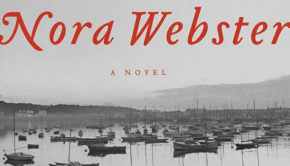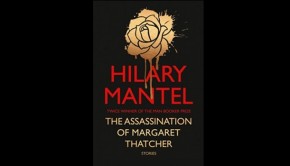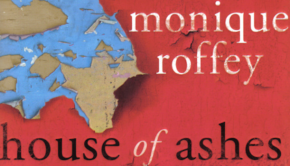Expo 58 by Jonathan Coe
| Press reviews | Buy the book | Have your say |
Blurb: London, 1958: unassuming civil servant Thomas Foley is plucked from his desk at the Central Office of Information and sent on a six-month trip to Brussels. His task: to keep an eye on The Brittania, a brand new pub which will form the heart of the British presence at Expo 58 – the biggest World’s Fair of the century, and the first to be held since the Second World War. As soon as he arrives at the site, Thomas feels that he has escaped a repressed, backward-looking country and fallen headlong into an era of modernity and optimism. He is equally bewitched by the surreal, gigantic Atomium, which stands at the heart of this brave new world, and by Anneke, the lovely Flemish hostess who meets him off his plane. But Thomas’s new-found sense of freedom comes at a price: the Cold War is at its height, the mischievous Belgians have placed the American and Soviet pavilions right next to each other – and why is he being followed everywhere by two mysterious emissaries of the British Secret Service? Expo 58 may represent a glittering future, both for Europe and for Thomas himself, but he will soon be forced to decide where his public and private loyaties really lie. (Viking, 2013)
Robert McCrum, The Observer
“Put a quiet, unassuming English civil servant at the crossroads of superpower conflict, the apex of the quest for modern life, and you have the makings of both a thriller and a comedy. Expo 58, triumphantly, is as compelling as it is entertaining. With the exception of Graham Greene inOur Man in Havana, no one has managed to marry these genres. ButExpo 58 is quite the equal of Greene’s “entertainment”. Thomas Foley, a humble desk officer at the Central Office of Information (COI) is the classic Englishman abroad: well-meaning, apologetic, and a martyr to misunderstanding.”
Lucy Kellaway, The Financial Times
“Expo 58 is Coe at his funny-serious best, offering his idiosyncratic mixture of slapstick and profundity in a love-and-spies story set at the height of the cold war. It’s a fashionable backdrop for British novelists, recently chosen by Ian McEwan; yet while McEwan’s novel Sweet Tooth (2012) was all literary twists, Expo 58 is what Coe is so good at providing: pure enjoyment. Or rather, it’s awfully decent, old chap. Good Lord, man, it’s top-notch.”
Harry Ritchie, The Daily Mail
“Clever and funny, enthralling and moving, this is, for my money, Coe’s best novel since What a Carve-Up! Wonderful.”
John Walsh, The Independent
“It’s a rich and splendidly comic confection. Coe doesn’t avoid clichés in depicting the late 1950s – he delights in them, and draws them, postmodernistically, from a dozen sources. His narrating voice is studiedly old-fashioned, guarded, mildly bigoted: “Thomas turned to get the measure of this speaker for the first time. With one remark, all his prejudices about Americans had been confirmed. The man was young, in his late twenties or early thirties and his hair was crew-cut…”"
Sarah A. Smith, Literary Review
“Expo 58 is more than a clever comedy, however. As Putin’s Russia hurtles back to the bad old days of state repression and European unity begins to show some cracks, there is something rather timely about Coe’s choice of the World Fair as a subject and Andrey and Anneke as two of its representatives. Similarly, the questions that the book astutely asks – what is Britishness and how can it be summed up? – are as pertinent today as they were 55 years ago.”
Ian Thomson, London’s Evening Standard
“Expo 58 is, among other things, a meditation on Britain’s imperial decline and what it meant to be British at the end of the 1950s. A comico-serious delight, the novel absorbs from start to finish; rarely has Belgium looked so plain, dark-chocolate dangerous or inviting.”
Cressida Connolly, The Spectator
“It’s all tremendously good fun. Jonathan Coe finds certain words inherently funny: Leatherhead, Tooting, corn-plaster, gay in its original sense. Inevitably, he cannot resist including some radical ideas from the time, as when Thomas announces that he’s read that cigarettes may be bad for people; salt, too. Such comments are, naturally, met with hoots of derision. Gentle fun is poked at Belgium: ‘Surrealism is the norm here, old man. They pretty much invented it.’ But Coe’s real satirical butt — as ever — is England, which gets off very much less lightly. There are jokes at the expense of our rigid oppostion to new ideas, our racism, our inablility to say what we mean, our food.”
James Lasdun, The Guardian
“ It is too self-conscious to pass as a straight period piece. Too gracefully written and carefully constructed to read as throwaway spoof or parody. Too madcap to take very seriously. “Homage” perhaps best describes its essentially affectionate relationship to the materials it draws on, but that isn’t quite it either.”
Jonathan Grimwood, The Daily Express
“Although echoes of Coe’s earlier firepower are there, in the end Expo 58′s humour is too broad to carry its moves out of Ealing comedy into Ian-Fleming like suspense or Hitchcockian poignancy. That said Coe is good, sometimes very good, at the grinding boredom of a small life that, in the late Fifties, is still outweighed by the reassuring safety it carries. He is at his best, when he touches on what it means to be part of Europe and whether Britain can ever fill that role, when the rest of the Continent is… well, just so European.”
David Mills, The Sunday Times
“The problem with Expo 58 is too much exposition, too much telling and not enough showing of the plot. This is an unfortunate consequence of having a passive, clueless hero who has little idea what is going on around him — so while Foley is fretting over a pint in the pub, a real agent is murdering another spy, and we find out about this only when Foley is told months later, which rather drains the incident of excitement.”
Hannah McGill, The Scotsman
“By standing several paces back to smirk at his characters’ silliness, Coe prevents us from seeing them as feeling people and caring about their fates. Nor is this really a spoof (for it says little about then), or a satire (for it says nothing about now). It’s a spy thriller for people who don’t much like spies or being thrilled – for whom Le Carré is a bit complex, Fleming too dark and ’Allo ’Allo a little on the sexy side.”
Leo Robson, The Times
“It isn’t long before Thomas becomes haplessly involved in espionage, but Coe’s plotting is clunky. Ian McEwan, even in a flimsy novel such as Solar, knows exactly how to drop a crucial detail among the incidental ones – and how to make it vivid enough to be memorable without applying giveaway levels of emphasis. Coe is up to something like that here, covering his pages with topical references, and asking one of them to do more than just set the scene. But he dangles his clues too near to the reader’s nose and the eventual pay-off could hardly come as less of a surprise.”
Buy the book
Amazon | Foyles | Hive | Waterstones












